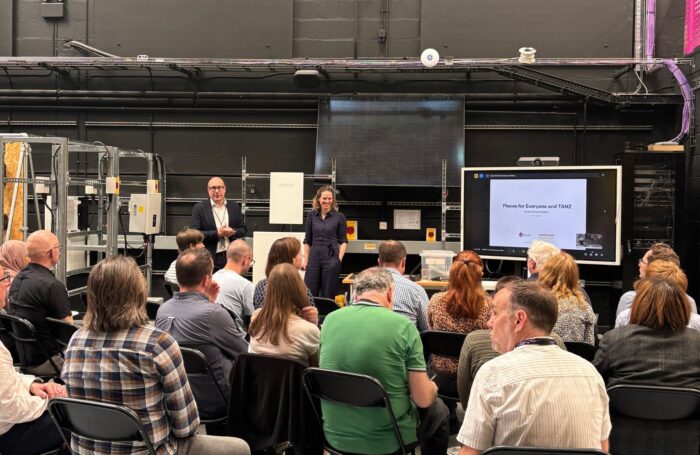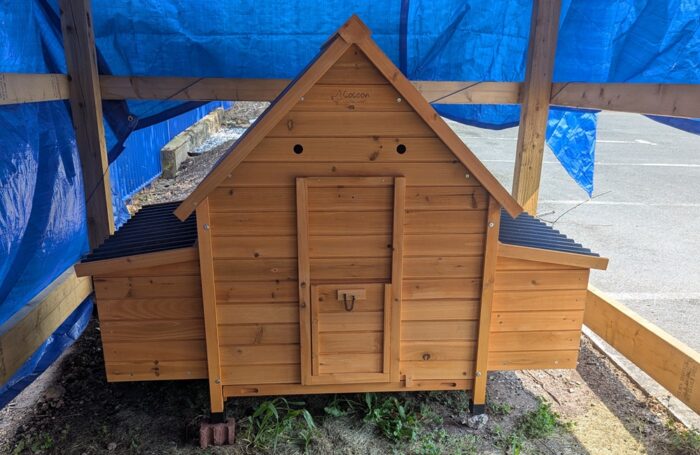Unlocking Clean Energy in Greater Manchester (UCEGM) brings together five local authorities that have declared a “climate emergency” – Manchester, Rochdale, Salford, Stockport, and Wigan.
The 3-year £17.2m project – led by Energy Systems Catapult and part-funded with £8.6m from the European Regional Development Fund – will capitalise on under-utilised council-owned sites and buildings, to develop:
- 10 Megawatts of solar PV and hydro-electric generation,
- battery storage,
- electric vehicle (EV) charging, and
- smart energy management systems.
The projects planned include solar farms at Chamber House farm in Rochdale and Kenyon Way in Salford, three rooftop solar schemes in Stockport and a rooftop solar scheme at Makerfield Way in Wigan.
Energy Systems Catapult will focus on the development of innovative new business models to maximise the value from the electricity generated, for example by taking advantage of regulatory changes, or utilising flexibility between clean energy assets distributed across the city as part of Manchester’s emerging Local Energy Market.
Richard Halsey, Capabilities Director at Energy Systems Catapult, said: “There are three equally important parts to this innovation project.
“Firstly, building renewable energy generation on under-utilised council land to reduce energy costs and carbon emissions for local authorities.
“Secondly, incorporating energy storage and electric vehicle charging using smart digital systems to make weather dependent renewable generation more flexible to local energy demands.
“Thirdly, developing a range of innovative business models that not only reduces energy costs but which may attract private sector investment and grow local businesses.
“The aim for Energy Systems Catapult is to provide a blueprint that is replicable and can help scaleup local and national clean energy systems.”
The UCEGM project is an example of how the Greater Manchester districts are collaborating to deliver the regions aspiration of 2038 carbon neutrality. The outputs delivered will account for 22% of the Greater Manchester 5-year environment plan energy generation target.
Councillor Angeliki Stogia, Executive Member for Environment, Planning and Transport for Manchester City Council, said: “Manchester has been bold in setting out our vision to become a carbon neutral city by 2038. This is not an easy target, but as a Council we feel it is the right one, not only for our residents, but for the long term prosperity of Greater Manchester.
“As set out in our Climate Change Action Plan 2020-25, the Council has committed to halving its emissions by 2025 and we will continue to play an active role in the Manchester Climate Change Partnership to address the urgent need to create a cleaner and greener Manchester.”
Councillor John Blundell, Cabinet Member for Regeneration, Business, Skills and Employment at Rochdale Borough Council, said: “The planned solar farm at Chamber House will generate 4,500 megawatt hours of electricity per year, enough energy to power 1,250 homes, or 1.4 per cent of our borough’s homes – annually, over the next 30 years.
“This will make a significant contribution to reducing carbon dioxide emissions and tackling climate change and supports the important commitment we’ve made, alongside other GM boroughs, to make the city region carbon neutral by 2038, 12 years earlier than the national clean air target.
Councillor Derek Antrobus, Lead Member for Planning and Sustainable Development at Salford City Council, said: “This is a major step forward in Salford’s ambitions to help cut carbon emissions and reduce the scale of climate change. In the past decade we have reduced our carbon emissions by 50 per cent and become the first authority in Greater Manchester to convert its high street lights to LED. All the electricity for the council comes from renewable suppliers. All this helps to combat climate change and save money.”
Councillor Elise Wilson, Leader of Stockport Council, said: “Stockport welcomes this fantastic opportunity to develop innovative roof top solar PV schemes on key properties at Merseyway and Stockport Exchange in the town centre and at our depot, Endeavour House. These schemes will be lead the way in how we produce local clean energy in the future, reducing our carbon footprint, and helping to tackle climate change.”
Councillor Paul Prescott, Cabinet Member for Environment at Wigan Council, said: “We are delighted to have secured this funding in what will be another step in the council’s journey to becoming carbon neutral by 2038 or sooner.
“This money will go towards making our Makerfield depot greener and more sustainable and by installing solar panels to the roof we will generate sufficient renewable electricity to power the full operations, thus reducing our carbon footprint and delivering significant savings with all excessive electricity stored and used to charge our electric fleet.
“As a council, we want to be at the forefront of positive change when it comes to creating a greener and cleaner borough and investments like this will go a long way to accelerating our ambitions.”
Cllr Andrew Western, GMCA Lead for the Green City-Region, said: “This innovative new green energy project is yet another boost to our plans to become carbon neutral by 2038.
“Demonstrating the unique partnership working across our local authorities, we’re seeing buildings, land and locations being revitalised, optimised and future-proofed with a blend of renewable, clean energy generation. This initiative will also help to pioneer business models which will contribute towards reducing energy costs and carbon emissions.
“By piloting these unique business models nationally, we are showing that Greater Manchester is not only leading the way with our clean energy plans, but is the ideal place to invest in the future of innovation.”
James Johnson, Head of Regional Programme for the Local Energy North West Hub, said: “The Local Energy North West Hub has provided technical assistance and advised on the business case for UCEGM and is pleased to have supported a successful application for ERDF funding. The collaboration is a strong example of public sector organisations working together to deliver projects that support challenging carbon reduction targets. These local energy schemes will demonstrate innovation in public ownership of renewable energy assets on low value land to supply council building and will be an example to other institutions.”
‘Solar Power Matrix’ taken by David Goehring and used under a creative commons license.



